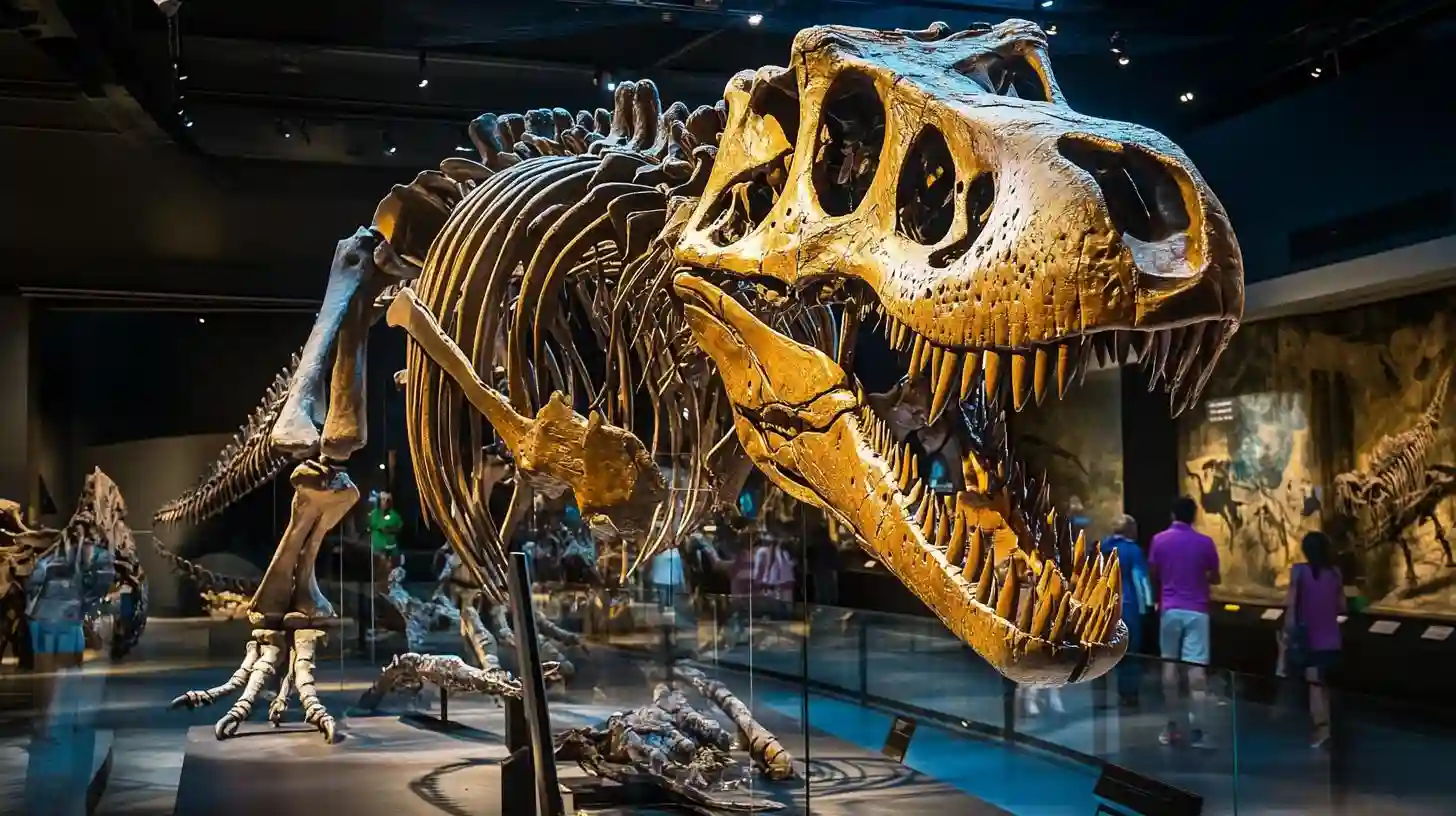
The Natural History Museum in London stands as a beacon of scientific exploration and discovery, captivating the hearts of science enthusiasts from around the globe. Its remarkable architecture, which is itself a marvel, evokes curiosity even before visitors step inside. Constructed in the Victorian era, the building boasts intricate detailing, including ornate arches and stunning stone carvings, that celebrate various forms of life and natural phenomena. This visual splendor sets the stage for the incredible journey awaiting inside, making it an ideal destination for anyone with a passion for science and natural history.
Upon entering the museum, visitors are greeted by the iconic dinosaur skeletons that have become synonymous with the institution. The presence of these awe-inspiring fossils sparks fascination, illustrating the grandeur of life on Earth millions of years ago. The museum houses one of the most comprehensive dinosaur collections in the world, giving science enthusiasts a chance to marvel at specimens of various species, many of which are some of the most complete ever found. These impressive displays not only showcase the diversity of prehistoric life but also allow audiences to grasp the concepts of evolution and the survival of species, themes that are central to the field of natural history.
As visitors explore the numerous galleries within the museum, the sheer breadth of exhibits becomes apparent. From the wonders of the mineral kingdom to the complexities of the animal kingdom, each display is carefully curated to educate and inspire. The exhibit on biodiversity emphasizes the interconnectedness of ecosystems and the importance of conservation, a critical topic in today's world. In addition, the museum's commitment to research and education is evident, with many displays featuring the latest scientific findings and opportunities for visitors to engage with experts in the field. Interactive exhibits encourage hands-on learning, making even the most complex scientific concepts accessible to audiences of all ages.
One of the highlights of the museum experience is the opportunity to witness ongoing scientific research. The Natural History Museum is home to an extensive collection of specimens, many of which are used for research purposes, revealing the museum's role as a center for scientific study. Visitors often have the chance to observe scientists at work, further underscoring the museum's dedication to advancing knowledge in various scientific disciplines. This unique blend of exhibition and research offers a dynamic environment for intellectual exchange, enhancing the overall experience for those passionate about the sciences.
The museum also excels in showcasing the history of our planet beyond the fossilized remains of dinosaurs. Visitors can traverse the geological timeline, learning about the formation of Earth, the development of life, and the environmental changes that have shaped the planet over millions of years. Displays highlight key events such as the ice ages and periods of volcanic activity, providing a comprehensive overview of Earth’s history and demonstrating the ever-evolving nature of scientific understanding. This narrative offers not just a glimpse into the past but also draws attention to the current environmental challenges facing our planet, allowing visitors to reflect on the importance of sustainability and the role of science in addressing these issues.
For those with a specific interest in marine biology, the museum features a remarkable collection dedicated to ocean life. Exhibits include marine specimens from across the globe, showcasing the extraordinary diversity of life forms found beneath the waves. These collections serve as a powerful reminder of the mysteries still present in our oceans and inspire future generations to pursue scientific inquiry in this crucial field. The various artful displays also highlight the delicate balance between human activity and marine ecosystems, promoting awareness and understanding of conservation efforts vital for protecting our oceans.
The Natural History Museum also hosts a variety of special events, lectures, and workshops throughout the year, further enriching the experience for science enthusiasts. These events often feature renowned scientists and researchers sharing their latest discoveries, fostering a sense of community and dialogue among attendees. This interactive approach encourages individuals to engage with science in meaningful ways, igniting a passion for inquiry that extends far beyond the museum's walls.
Visiting the Natural History Museum offers a unique opportunity to immerse oneself in the wonders of the natural world. The museum serves as a vital resource for education and inspiration, drawing individuals from various backgrounds to explore the complexities of science and nature. Its dedication to research, education, and conservation makes it an invaluable institution, ensuring that the pursuit of knowledge continues to thrive for generations to come. A visit to this magnificent museum is not just an exploration of exhibits; it's an enriching journey that fosters curiosity, dialogue, and a deeper appreciation for the natural world around us. Whether one's interests lie in fossils, ecosystems, or marine life, the possibilities for discovery are boundless, making the Natural History Museum in London a must-visit destination for every science enthusiast.